
In our previous articles on developing a charge controller for wind power, we discussed the features it must have to make the product attractive. We also used the quality function deployment analysis to discover the features, components, manufacturing process, and quality assurance approach of that charge controller.
The draft plan we made so far needs expansion with further details. For instance, we need circuit diagrams, PCB design, product packaging, user manuals, manufacturing plan, sources for materials, marketing plans, budget, pricing, etc. All these skills are not available to a single person, so we need people with electronics engineering, supply chain planners, package designers, embedded. software designers, accountants, web developers, and a marketing team.
When we start defining the product, we have too many options and very few details about what we plan to make, its features, design, manufacturing plan, supply chain structure, distribution plan, pricing, market, etc. The initial QFD analysis that we had done in our previous article helped to develop a draft product definition. This product definition needs further detailing and has to go through several iterations before we get our concepts cleared and develop a marketable product plan.
There can be various paths of product development. In technical language, we call this path a development model. Each of the product development models has certain advantages and certain drawbacks. The first decision we take in product development is to decide on this development model. Let us look into some of the popular development models and understand where to use which one.
Waterfall model
This story is from the March 2023 edition of Electronics For You.
Start your 7-day Magzter GOLD free trial to access thousands of curated premium stories, and 9,000+ magazines and newspapers.
Already a subscriber ? Sign In
This story is from the March 2023 edition of Electronics For You.
Start your 7-day Magzter GOLD free trial to access thousands of curated premium stories, and 9,000+ magazines and newspapers.
Already a subscriber? Sign In
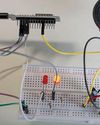
ESP32-Powered AUDIO-VISUAL SIREN
This sound alternator is designed to simulate the effects of a police siren, combining sound and light to create a dynamic audio-visual experience.
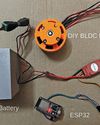
BLDC MOTOR With Web-Based Speed Control Using ESP32
Integrating wireless control into brushless direct current (BLDC) motor systems opens up exciting possibilities for applications such as remote-controlled cars, robots, and other innovative systems.
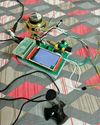
Pi Zero Portable BILINGUAL TRANSLATOR
This system is designed as a bilingual translator, leveraging the gTTS library to support multiple Indian languages, including English (en), Bengali (bn), Gujarati (gu), Hindi (hi), Kannada (kn), Malayalam (ml), Marathi (mr), Tamil (ta), Telugu (te), and Urdu (ur).
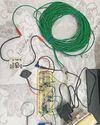
Op-Amp-Based VEHICLE THEFT DETECTOR
A simple, low-cost device can effectively alert homeowners or occupants if a parked vehicle is moved or tampered with.
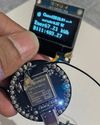
loT SMART METER With Dashboard
Energy meters in homes track electricity usage, enabling accurate billing by governments and providers.

Choose The Right Cloud Platform For Implementing loT PROTOCOLS
Working with loT protocols like MQTT, AMQP, and CoAP on cloud platforms is essential for developing scalable and efficient lol applications. The choice of the programming platform will depend on factors like project requirements, existing skills, and target devices. Leveraging the appropriate libraries and cloud services can enable seamless integration of lol devices with cloud-based applications.

Why TMR SENSORS Lead Next-Generation Design
TMR sensors are gaining traction in industries needing precision and power efficiency. What makes them the go-to choice for modern designs?
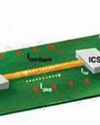
DESIGNING PCBs For EMI Management
Electromagnetic interference can derail your PCB’s performance. EMI management is not just a technical necessity but a hallmark of exceptional PCB design.

CUTTING COSTS, NOT CORNERS: Building Large Scale Applications With Open Source Software
Here are some strategies and best practices for leveraging open source to create enterprise-grade web and mobile applications without sacrificing quality or functionality.

"We Are One Of India's Very Few State Bodies To Manage The Entire Lifecycle Of The Electronics EcosystemFrom Approvals To Subsidies."
What is Gujarat State Electronics Mission GSEM), and how is it attracting major investments in electronics manufacturing, particularly semiconductor manufacturing, to Gujarat? To delve deeper, Electronics For You’s Nijhum Rudra spoke with Manish Gurwani, the head of GSEM. Here is what he revealed...